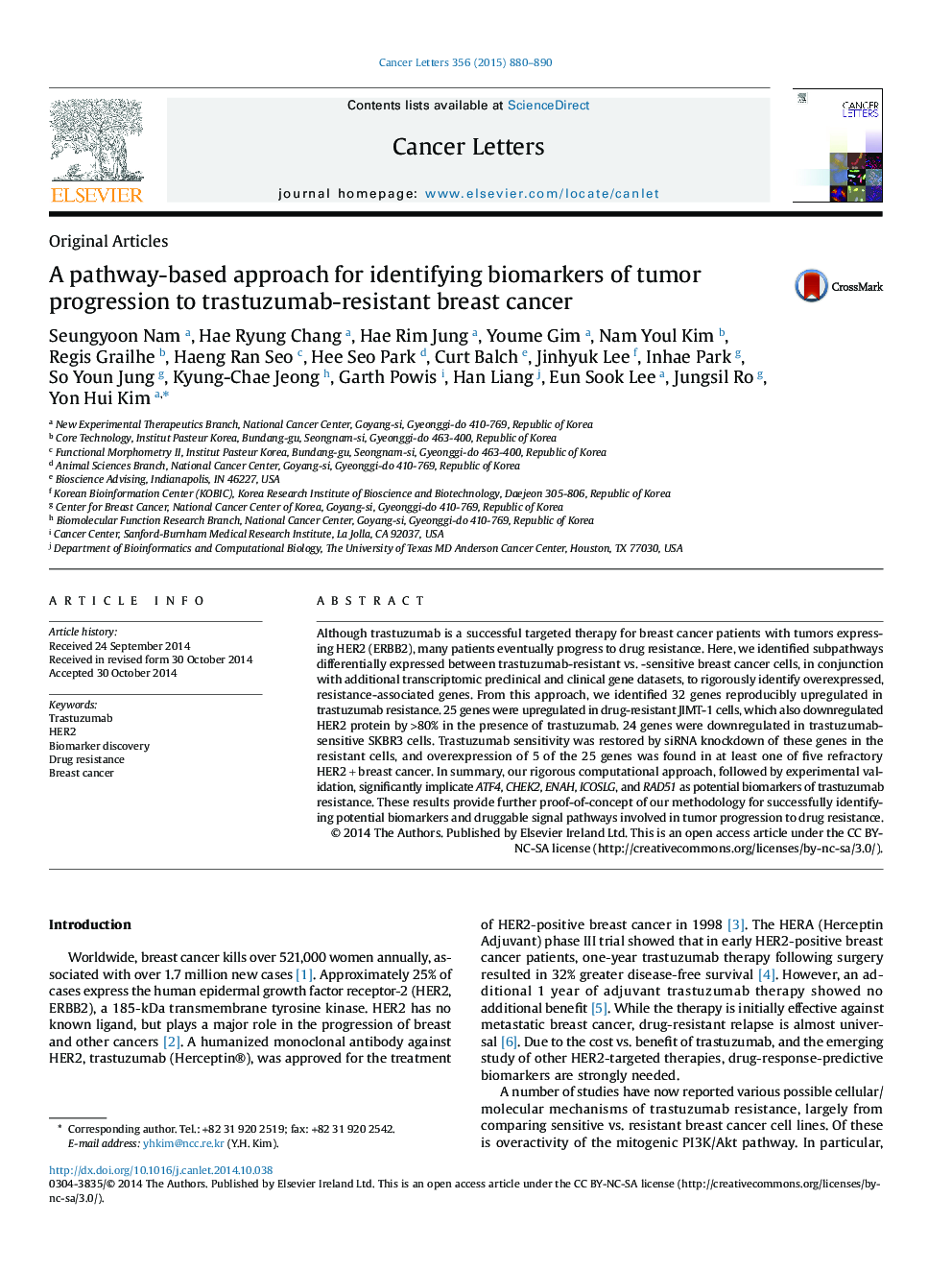| Article ID | Journal | Published Year | Pages | File Type |
|---|---|---|---|---|
| 10899727 | Cancer Letters | 2015 | 11 Pages |
Abstract
Although trastuzumab is a successful targeted therapy for breast cancer patients with tumors expressing HER2 (ERBB2), many patients eventually progress to drug resistance. Here, we identified subpathways differentially expressed between trastuzumab-resistant vs. -sensitive breast cancer cells, in conjunction with additional transcriptomic preclinical and clinical gene datasets, to rigorously identify overexpressed, resistance-associated genes. From this approach, we identified 32 genes reproducibly upregulated in trastuzumab resistance. 25 genes were upregulated in drug-resistant JIMT-1 cells, which also downregulated HER2 protein by >80% in the presence of trastuzumab. 24 genes were downregulated in trastuzumab-sensitive SKBR3 cells. Trastuzumab sensitivity was restored by siRNA knockdown of these genes in the resistant cells, and overexpression of 5 of the 25 genes was found in at least one of five refractory HER2â+âbreast cancer. In summary, our rigorous computational approach, followed by experimental validation, significantly implicate ATF4, CHEK2, ENAH, ICOSLG, and RAD51 as potential biomarkers of trastuzumab resistance. These results provide further proof-of-concept of our methodology for successfully identifying potential biomarkers and druggable signal pathways involved in tumor progression to drug resistance.
Related Topics
Life Sciences
Biochemistry, Genetics and Molecular Biology
Cancer Research
Authors
Seungyoon Nam, Hae Ryung Chang, Hae Rim Jung, Youme Gim, Nam Youl Kim, Regis Grailhe, Haeng Ran Seo, Hee Seo Park, Curt Balch, Jinhyuk Lee, Inhae Park, So Youn Jung, Kyung-Chae Jeong, Garth Powis, Han Liang, Eun Sook Lee, Jungsil Ro, Yon Hui Kim,
